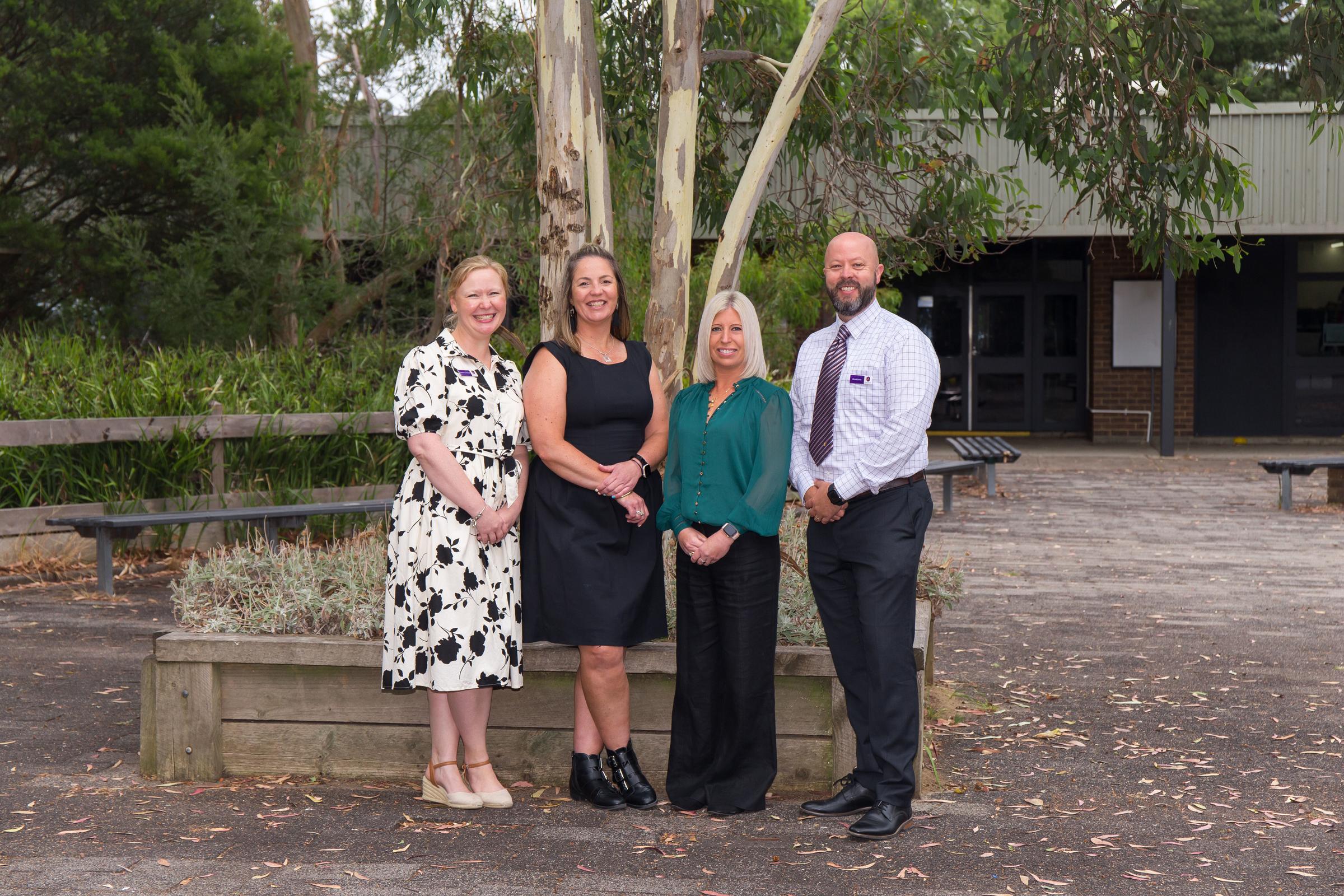PRINCIPALS REPORT

I would like to start this Newsletter by thanking and congratulating our parents and carers. I can appreciate that it can be challenging at times working with your adolescent children, motivating them to be the best versions of themselves within your family dynamic, here at school and as citizens in the community. It is important to me that you know that I am grateful and appreciative of the support you give not only in the good times, but when challenges are arise. An example of this, is the support we received this week in making sure our students were in uniform and ready to learn. When working collaboratively, we do see an increase in positive behaviours and outcomes for our students.
Please keep an eye out for an invitation from College Council to engage in an opportunity to provide feedback via focus groups with College Council members. Parents and Carers will be able to discuss their thoughts and feelings, being guided by the questions provided by DET Parent/Carer opinion survey.
Students and Staff have shown gratitude to the families that were able to attend our Working Bee or contribute financially a couple of weeks ago. This support resulted in the completion of our Indigenous, hire of a digger to remove overgrown garden beds in the Quadrangle, the relocation of this vegetation and the purchase of plants for 3 garden beds near our Canteen outdoor area and one garden bed in the Quadrangle. We will be sure to share images once we get the new plants into the ground!
We are pleased to announce that the builders that removed Eaves around the college at the beginning of the year, will return in the next couple of weeks to reinstate the eaves. Over the break, they will continue to remove eaves upstairs. This will mean that the community should not be on site during the holiday break due to asbestos removal.
We are very close to choosing an architecture company to start the design process for our Federally funded Science and Design wing. While the building of these wings will not be completed until the end of 2025, the potential of the finished product is super exciting.
Family and Friends held another successful Mother’s Day Breakfast. The funds raised from this event will contribute towards landscaping at the front of the college. Sue Holderness, one of our Design teachers, is working with her senior students on a seating installation and rejuvenated Gallipoli Lone Pine installation. The vision these students have for this space is spectacular. I am very proud of the consultative and design process they have gone through to have this approved by myself, the Maintenance team and Business Manager.
This term during Staff Professional Learning sessions, staff are being introduced to the new DET High Impact Wellbeing Strategies.
What are the High Impact Wellbeing Strategies?
The HIWS are 7 evidence-informed strategies developed in partnership with Monash University. They have a significant effect on student wellbeing. The HIWS empower school staff with the knowledge and skills to build student wellbeing.
The HIWS form part of the Victorian Teaching and Learning Model. They are a companion to the High Impact Teaching Strategies and contribute to effective instructional practice.
The HIWS complement existing school processes and practices of Real School.
Effective teachers will use multiple strategies to meet the needs of their students.
Teams of teachers can collaborate to use the strategies to promote student wellbeing.
Strategy 1: Setting goals
Strategy 2: Structuring lessons
Strategy 3: Explicit teaching
Strategy 4: Worked examples
Strategy 5: Collaborative learning
Strategy 6: Multiple exposures
Strategy 7: Questioning
Who are the HIWS for?
The HIWS have been developed for use by teachers in the classroom.
They can also be used by Education Support staff, school leaders, school-based wellbeing staff and in multi-disciplinary area teams and Professional Learning Communities.
What are the benefits of using the HIWS?
Integrating the HIWS into regular practice will also help teachers to develop new skills and extend existing ones. The HIWS benefit:
· Students by having a positive effect on their wellbeing.
· Beginning teachers as a bank of practices that build teachers' understanding of student wellbeing. The strategies will help beginning teachers build stronger relationships with students.
· Experienced teachers by enhancing their understanding of student wellbeing. The strategies support experienced teachers to build their practice and encourage reflection.
· Education support staff by supporting stronger relationships with students. The strategies build a greater understanding of student wellbeing.
· School-based wellbeing teams as an opportunity to collaborate with teachers to build their understanding of student wellbeing. The strategies are a Tier 1 universal intervention. They align with whole-school approaches to promoting mental health and wellbeing.
· School leaders by supporting implementation of a whole-school approach to promoting student wellbeing.
I have been asked by local businesses in the Village to express some concern they have around behaviours by some of our students. They are typically very complimentary of our students, however unfortunately there a few that are not representing the college in a positive light. Please discuss with your students the importance of being polite and respectful of workers and community members when they are in the Village after school and be upstanders with friends if they are not doing the right thing. We will have one of the Principal Team present sporadically, particularly Friday after school.

